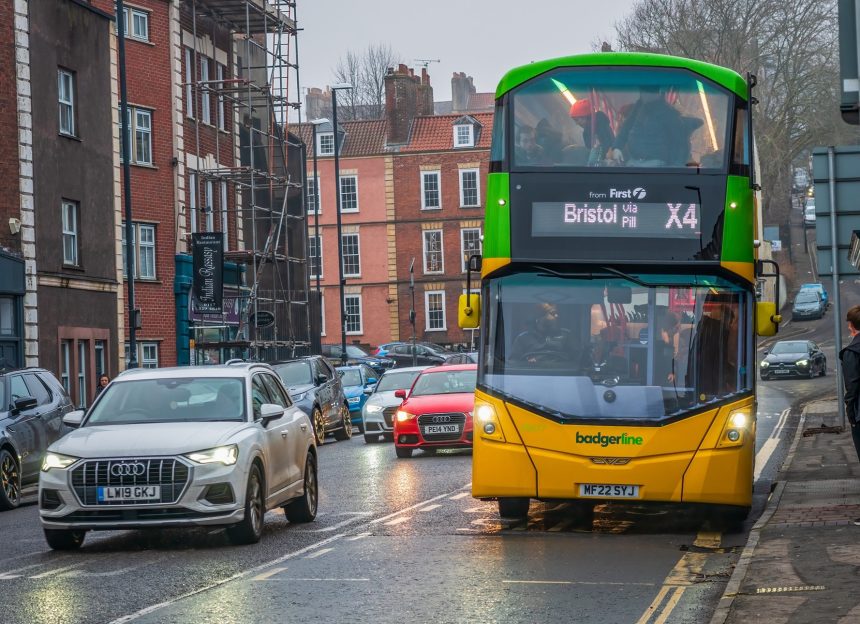A proposed workplace parking levy (WPL) in Bristol that would generate funding for bus services in the city is to move to the scheme development and outline business case (OBC) stage. That follows approval of such a step by the Bristol City Council (BCC) Transport and Connectivity Policy Committee on 12 September, subject to resource availability.
Should the WPL go ahead, a charge would be placed on commuter workplace parking spaces in Bristol. As the first part of work towards a WPL, scheme development and OBC preparation will be paid for by proceeds of the Bristol Clean Air Zone (CAZ).
Monies raised from a WPL are ringfenced for Local Transport Plan policies and objectives, including bus service improvements.
The initial tasks towards a WPL that were approved by BCC represent one of three stages to full implementation. In papers put before the Committee, the local authority notes that the potential WPL “requires further work” and that discussions over introduction of the measure date as far back as 2011.
In more recent years, Nottingham City Council was commissioned by BCC to deliver an updated feasibility study. The well-known workplace parking levy in Nottingham has raised a claimed £83 million since introduction in 2012, with an annual charge of £550 per space.
In Bristol it is envisaged that a £20 per week charge in the central area could generate up to £10 million per year. Stage two on the journey is public consultation, development of final business case, and formal approval. Reaching that will involve “a complicated, detailed process,” BCC says.
Although bus services would see funding from a WPL, the meeting papers note that other modes could also benefit. Allocation of generated revenue forms part of the opening work, although there is no guarantee of the plans advancing to later stages.
No date is given for when a workplace parking levy might rollout in Bristol, but the papers state that preparation of an outline business case is expected to take a year. The feasibility report prepared by Nottingham City Council gave an indicative three-year timeframe from beginning the outline business case and scheme development to charging commencing.
Bristol City Council separately notes that while bus services in the city receive funding from CAZ receipts, the quantum of such monies “is unclear” and the proposed WPL would provide longer-term support.
A workplace parking levy is planned for Oxford. Plans for such a scheme in Leicester were abandoned in late 2022 with the cost-of-living crisis cited as a major contributor to that decision.



























